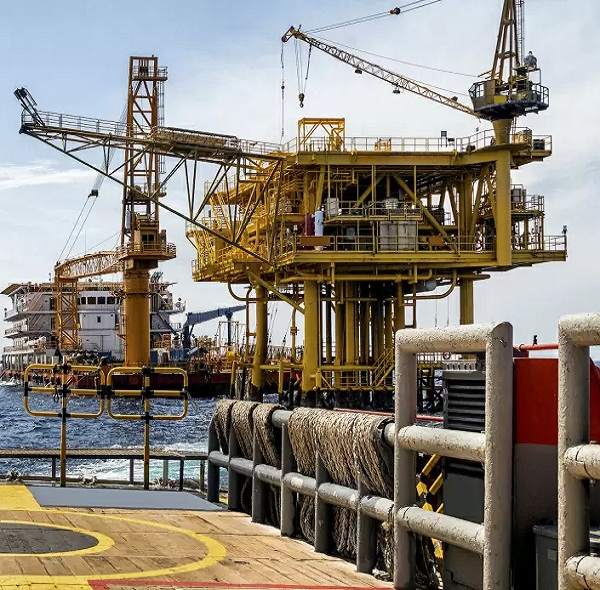When divestment of oil assets begun in Nigeria 10 years ago, many didn’t foresee that it would grow in exponential scale in the foreseeable future.
Currently, the wave of divestment of oil assets by international oil companies had grown to an unimaginable height with impacts on the local players in the oil and gas sector.
There are fears that the foreign companies may be calling it quit on account of the divestment, but most of them had since denied same and indeed explained that the divestment is an added strength to the sector through enablement of local players therein
Besides, many of the IOCs have restated their interest in consolidating their offshore capacity, relinquishing the onshore assets to local players.
In January 2021, Eni and the partners divested the onshore production and development block OML 17 (Eni’s interest was five per cent). Depending on what Eni decides to sell, the transaction may rise from $2 billion to $5 billion.
Besides, Shell is expected to divest about $2.3 billion, ExxonMobil is expected to divest as much as $15 billion worth of assets. Eni’s figure was put at about $5 billion.
Recently, Seplat Energy Plc announced an agreement to acquire the entire share capital of Mobil Producing Nigeria Unlimited from Exxon Mobil Corporation, Delaware for $1.28 billion.
The transaction involves the acquisition of ExxonMobil Nigeria’s entire offshore shallow water business. According to the deal, ExxonMobil Nigeria’s shallow water business is an established, high-quality operation with a highly skilled local operating team and a track record of safe operations, producing 95 kboepd in 2020 (92 per cent liquids).
There are concerns over indigenous firms’ preparedness to take over these assets amid lingering challenges.
Observers said legal challenges, decommissioning worth billions of dollars, weak infrastructure, existing battles on general clean-up and compensation for oil and gas producing communities top challenges that may make or mar most indigenous companies apart from existing issues of vandalism and theft.
It could also decide to keep the operations, they said. Reportedly, IOCs in Nigeria may this year consider offshore decommissioning campaign for selected fields even as industry players like Chairman/CEO of International Energy Services (IES) Ltd, Dr Diran Fawibe stressed on the need for the sector regulator, Upstream Petroleum Regulatory Commission (NUPRC) to work with the multinationals in ensuring that the offshore sites were decommissioned.
Fawibe was, however, sceptical about the capability of NUPRC to assess the level of assets that the oil firms would decommission.
“Decommissioning is one area where regulatory agencies need to properly monitor, especially the state of equipment in the Niger Delta, and then, work with the IOCs for decommissioning,” he said.
Chief Executive Officer of the Nigerian National Petroleum Company (NNPC), Mele Kyari admitted that there remained issues associated with divestment.
According to him, though Nigeria understands that energy transition agenda is pushing IOCs to change their portfolio, issues on abandonment and decommissioning remain critical.
Kyari noted that while companies are leaving Nigeria not primarily because there are no opportunities in the country, but the push from fossil fuels, which has in the last 10 year reduced investment in the oil and gas sector, creates very serious concerns for global energy.
“We do know that there are issues, we understand that this must take place, but also that it must be done in such a way that we are able to deal with issues around abandonment, decommissioning, and that we align with the energy transition journey,” he said.
Simbi Wabote, Executive Secretary, Nigerian Content Development and Monitoring Board (NCDMB), who noted that about 17 new local operators entered into the sector last year despite COVID-19 pandemic said: “with ongoing divestment, we see a huge opportunity where Nigeria should take charge of their natural resources, and of course produced for their people.”
According to him, the country needs to set targets where the nation would be in respect to local content development.
“It is time for us to synergise as Africa to expand that opportunity beyond the shores of Nigeria,” he noted. But the Chairman of Independent Petroleum Producers Group (IPPG), Abdulrazaq Isa, noted that challenges of oil theft, which create huge losses of crude, must be addressed sustainably.
Speaking recently in Abuja at the Nigerian International Energy Summit’s (NIES) opening, where President Muhammadu Buhari insisted that with Petroleum Industry Act (PIA) in place, there should be no excuses for the nation’s oil sector not to accelerate investment, most stakeholders were worried about energy transition and divestment from the sector.
According to Buhari, who was represented by Minister of State for Petroleum Resources, Timipre Sylva there is now a level of certainty for the regulatory, administrative and fiscal framework and the legitimate grievances of host communities most impacted by activities of the industry has been addressed by the Act.
Besides, the Petroleum and Natural Gas Senior Staff Association of Nigeria (PENGASSAN) ,says it has been following with keen interest the spate of IOC divestments from the Nigeria Oil and Gas Industry, most especially the onshore, swamp, and shallow waters.
It added that the trend that started in 2012 has spread quickly within the industry and has somewhat reduced the fortunes of developments within the Oil and Gas fields.
“While we are not averse to indigenous participation in the Nigerian Oil and Gas industry, we will not fold our arms and allow mediocre to take hold of our national assets and ruin the fortunes of future generations for immediate gains.
“It is on record that since IOCs started divestment in 2012, most of the companies that purchased such assets do not have and cannot attract the requisite finances for capital expenditures in such fields nor have made reasonable efforts to provide the required human and technical developments of Nigerians within their establishment.
“Most of these companies practically draw from the existing wells until it is dried up. They do not substantially if at all invest in workover operations or drilling of new wells. A country whose major source of foreign exchange earning is Oil and Gas can not afford to allow this depletion to continue and this charge PENGASSAN has decided to lead.
“More so, most of these companies do not only refuse the unionization of workers but also subject their employees to sub-optimal conditions. This is reprehensible and against all known laws and conventions.
The association said it will henceforth not cooperates with any company whether indigenous or foreign that does not have the capacity to develop the Oil and Gas fields or have a track record of subjecting employees to modern-day slavery.
The Minister of Petroleum must be worried of portfolio and briefcase investors in the Oil and Gas sector whose sole aim is to milk the field dry, as this will prevent a similar fate that befell the power sector. NNPC limited must be strengthened to become a major player in the upstream environment to spur and attract investment to Nigeria
It advised that concerted efforts should be made to persuade and further incentivize the IOCs to remain in the country in order to benefit from the newly passed PIA.
However, should they decide to exit after all efforts fail, a good investor that has relevant technical experience, good financial standing, and reputation for managing employees must be sort after. In such divestments, the jobs of Nigerians working in such locations, their exit/welfare package, and the ability of the investors to continuously develop such field which will, in turn, provide jobs for Nigerians working in the Oil and Gas service sector will be of utmost priority.
Even in the wake of the energy transition, the Oil and Gas industry will still be relevant for a long time to come, and such, the Nation must reap its full benefit.
PENGASSAN will continue to act as a watchdog and call any shady divestment to question with every tool at our disposal to protect our country, Nigeria, and the jobs of all Nigerians, it said
Besides, the Nigerian National Petroleum Company Limited (NNPC), Mele Kyari, has said international oil companies (IOCs) divesting from Nigeria’s upstream sector must address abandonment and decommissioning of oil assets.
Kyari said this in Abuja at the opening session of the fifth edition of the Nigerian International Energy Summit. This followed about six months after he highlighted key guidelines that would guide the evaluation of would-be replacement of divesting partner in the oil and gas industry.
Kyari told participants at the conference that while the country understood the right of companies to freely divest, it was however, critical to ensure that the right thing was done so as to avoid disruptions.
He added that issues and obligations relating to abandonment and decommissioning must be addressed and discharged in line with global best practices, regulations, convention and law
Source: Independent










